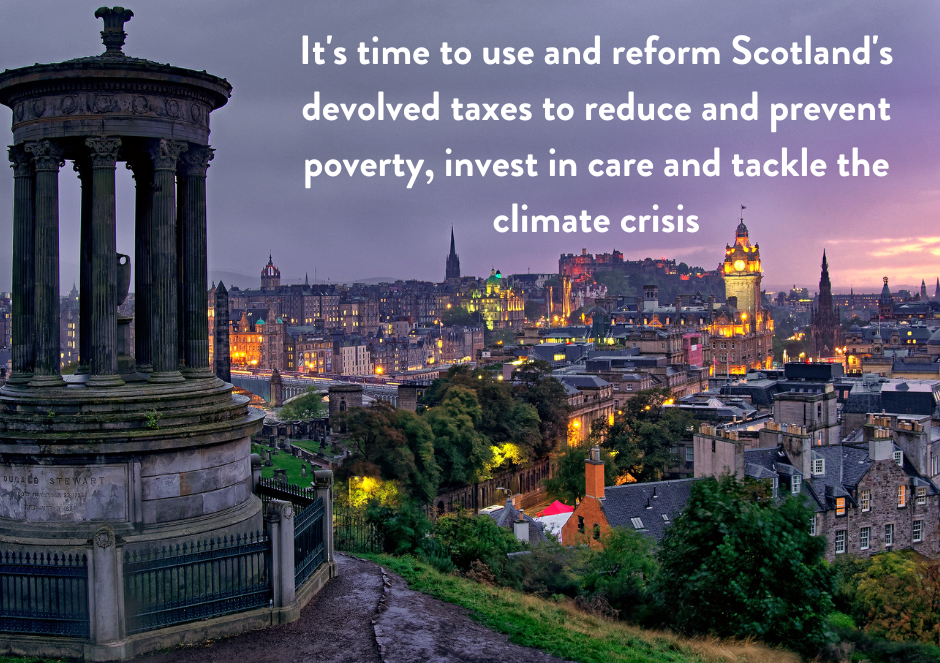By Jamie Livingstone
Humza Yousaf can’t afford to end Scotland’s persistent poverty problem.
Literally.
The First Minister is talking a very welcome game about tackling Scotland’s stubbornly high poverty rate, narrowing the yawning gap between rich and poor and combatting the climate emergency.
But even if he empties every piggy bank in Holyrood and then rummages down the back of his Bute House couch, these priorities will still end up being short changed.
That’s why the First Minister’s upcoming ‘anti-poverty summit’ must signal a turning point on tax.
We all already know what needs to be done to build a fairer, more equal Scotland: where everyone has enough money in their pockets to live a good life in a country that plays a leading role in tackling the climate emergency. The solutions exist. It’s the political will to use tax to fund them that’s too often been missing.
To fix this, it’s time for the First Minister to fulfil his promise to “be even bolder on taxation, and the redistribution of wealth” so he can then invest more in vital social security lifelines, public services and climate action while helping to reduce the wealth gap between the richest and the rest of us.
Tax policy in Scotland is more progressive than at UK level. While that’s positive, the Scottish Government could and should be much bolder.
Ministers could, for example, use the next Budget to deliver on Humza Yousaf’s stated intent to introduce a new higher rate tax band for better off earners. Modelling by IPPR Scotland shows that this could raise an additional £257 million a year: no small change.
But it’s also long past time to look beyond taxing incomes, and instead target under-taxed wealth.
It’s just not right that Scotland’s richest hold 217 times more wealth than the poorest. Scotland has a national goal to share wealth more evenly, but wealth inequality continues to rise.
Some important tax levers to change this – like inheritance tax – are reserved to Westminster, but the Scottish Government is very far from powerless.
With most of Scotland’s household wealth held in property, a good place to start is finally overhauling or replacing the Council Tax: progressive reform has sat on the back-burner for too long.
But wider wealth assets should be targeted too.
Humza Yousaf has repeatedly cited analysis by the STUC, which includes the introduction of an annual wealth tax on households with assets of more than £1 million in total. The modelling suggests that such a tax, even when some avoidance is factored in, could raise £1.4bn annually: that’s more than three times the Scottish Government’s planned spend this year on the Scottish Child Payment.
Bolder action on tax isn’t just common sense, nearly two-thirds of people in Scotland say they want increased taxation to boost spending on health, education and social security.
The public clearly know there’s no shortage of money in Scotland, and the First Minister appears to recognise it too. But unless Humza Yousaf uses his tax powers more fairly, he won’t win the fight against poverty. Scotland simply can’t afford to be timid on tax any longer.
